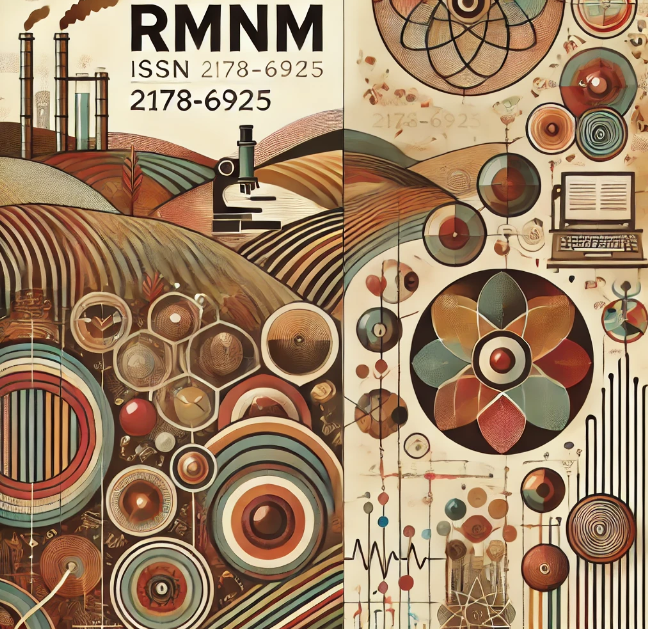METODOLOGIA HÍBRIDA DE APRENDIZAGEM BASEADA EM PROBLEMAS E EQUIPES (HPBE – HYBRID PROBLEM AND TEAM-BASED LEARNING)
DOI:
https://doi.org/10.61164/rmnm.v6i1.3534Palavras-chave:
PBL, TBL, Metodologia Ativa, Metodologia HíbridaResumo
A integração de alunos transferidos em períodos avançados de cursos da área de exatas e engenharia representa um desafio acadêmico significativo, especialmente no que se refere à adaptação ao nível técnico do curso, à socialização com novas equipes e à aquisição acelerada de conhecimento para a resolução de problemas. A metodologia híbrida HPBE (Hybrid Problem and Team-Based Learning) foi desenvolvida para aprimorar essas competências, combinando os aspectos mais eficazes do PBL (Problem-Based Learning) e do TBL (Team-Based Learning). O objetivo principal dessa abordagem é proporcionar um ambiente estruturado que favoreça a autonomia do aluno, o desenvolvimento do pensamento crítico, a capacidade investigativa individual e a integração social no novo contexto acadêmico. A metodologia organiza o processo de ensino em quatro fases distintas, promovendo um aprendizado eficiente e colaborativo, essencial para a adaptação e sucesso desses alunos.
Referências
BARROWS, H. S. (1986). A taxonomy of problem-based learning methods. Medical Education, 20(6), 481-486. https://doi.org/10.1111/j.1365-2923.1986.tb01386.x
BIGGS, J. (2003). Teaching for quality learning at university: What the student does. McGraw-Hill Education.
BLIGH, D. A. (2000). What’s the Use of Lectures? Jossey-Bass.
DOLMANS, D. H., DE GRAVE, W., WOLFHAAGEN, I. H., & VAN DER VLEUTEN, C. P. (2005). Problem‐based learning: Future challenges for educational practice and research. Medical Education, 39(7), 732-741. https://doi.org/10.1111/j.1365-2929.2005.02205.x
FINK, L. D. (2013). Creating significant learning experiences: An integrated approach to designing college courses. John Wiley & Sons.
JOHNSON, D. W., JOHNSON, R. T., & SMITH, K. A. (2014). Active learning: Cooperation in the college classroom. Interaction Book Company.
MICHAELS, S., O’CONNOR, C., & RESNICK, L. B. (2008). Deliberative discourse idealized and realized: Accountable talk in the classroom and civic life. Studies in Philosophy and Education, 27(4), 283-297. https://doi.org/10.1007/s11217-007-9071-1
MICHAEL, J. (2006). Where's the evidence that active learning works? Advances in Physiology Education, 30(4), 159-167. https://doi.org/10.1152/advan.00053.2006
MILLS, J. E., & TREAGUST, D. F. (2003). Engineering education—Is problem-based or project-based learning the answer? Australasian Journal of Engineering Education, 3(2), 2-16.
PRINCE, M. (2004). Does active learning work? A review of the research. Journal of Engineering Education, 93(3), 223-231. https://doi.org/10.1002/j.2168-9830.2004.tb00809.x
SCHWARTZ, P., & WEBB, G. (2012). Problem-based learning: Case studies, experience, and practice. Routledge.
WOOD, D. F. (2003). Problem based learning. BMJ, 326(7384), 328-330. https://doi.org/10.1136/bmj.326.7384.328
Downloads
Publicado
Como Citar
Edição
Seção
Licença
Copyright (c) 2025 Revista Multidisciplinar do Nordeste Mineiro

Este trabalho está licenciado sob uma licença Creative Commons Attribution-NonCommercial-ShareAlike 4.0 International License.




